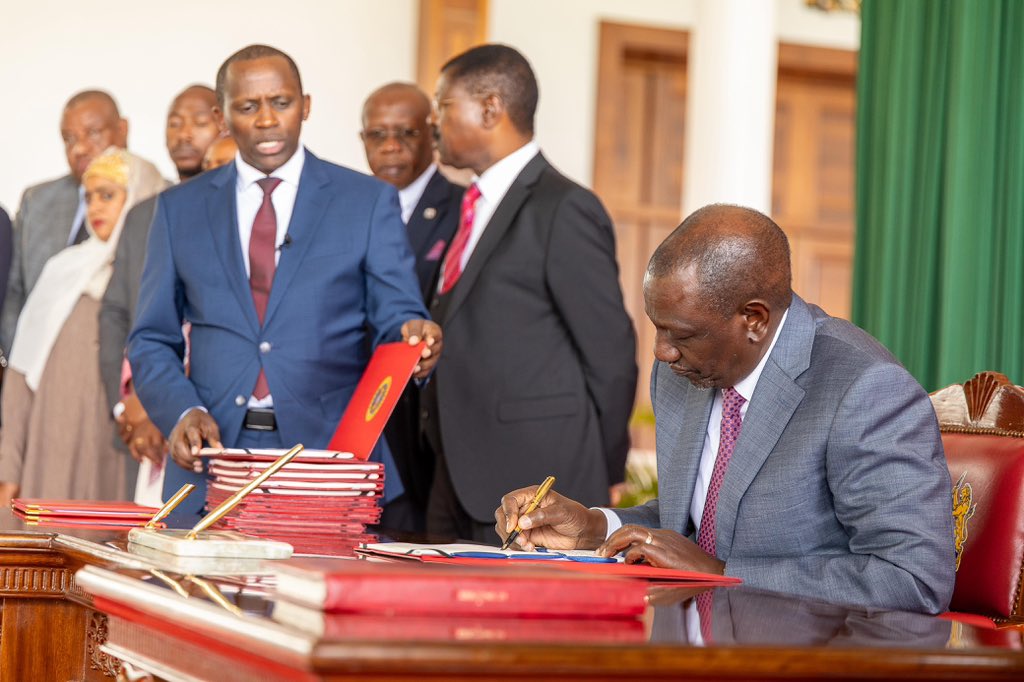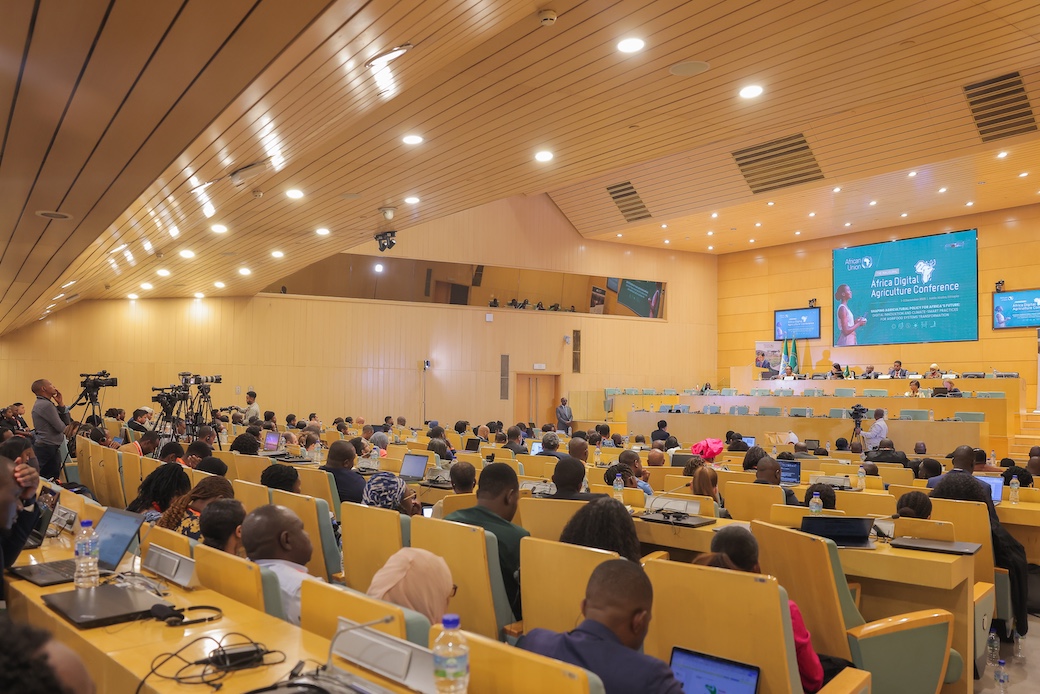Ruto signs laws to regulate gambling, shorten tenure of roads agency bosses

A key highlight of the new law is the introduction of a minimum bet threshold of Sh20. Any operator who permits bets below this amount risks a fine of not less than Sh5 million or imprisonment for up to five years.
The war on online betting addiction has intensified as President William Ruto has signed the Gambling Control Bill, 2023, into law.
The new law, signed on Thursday, introduces sweeping reforms to Kenya’s gambling landscape, including a real-time monitoring system, new licensing requirements, and the formation of the Gambling Regulatory Authority of Kenya, a corporate body with the mandate to license, regulate, and monitor gambling activities across the country.
More To Read
- Government road repairs fall to six-year low as funding cuts bite
- KeNHA invites Kenyans to Friday’s launch of the Rironi–Mau Summit highway upgrade
- KeNHA orders removal of illegal structures, unapproved billboards along highways
- Kenya secures Sh407 million grant to upgrade Mau Summit–Malaba Road
- Mombasa Road to temporarily close Sunday for World AIDS Day half-marathon
- MPs fault State officers over mismanaged road projects
The Act recognises gambling, including betting, casinos, public lotteries, and media promotions, as a shared function between the national and county governments. The new Authority will replace the Betting Control and Licensing Board and will work collaboratively with devolved units.
A key highlight of the new law is the introduction of a minimum bet threshold of Sh20. Any operator who permits bets below this amount risks a fine of not less than Sh5 million or imprisonment for up to five years.
“A player in an online gambling activity shall not bet an amount of less than twenty shillings in a competition. The minimum amount set under subsection (1) shall be inclusive of such saving component for the player as shall be determined by the Authority in consultation with the Cabinet Secretary,” reads the new law.
Additionally, gamblers must now register and hold accounts on licensed platforms. Operators are obligated to verify the age of every player to prevent minors from accessing their services.
“An operator shall put in place mechanisms to ensure that a child is not registered for an online game, lottery, or bet for which they are licensed to operate. An operator shall require proof of age of majority prior to the registration of every player,” the law states.
Winnings from online gambling must be transferred to players’ accounts within two days, and non-monetary prizes must be delivered within seven days.
The law also imposes new capital requirements for online gambling operators. Companies must now have a minimum capital of Sh100 million, a significant increase from the previous Sh250,000 threshold. This aims to ensure that only financially stable operators enter the market, thereby protecting players’ interests.
To obtain an online gambling licence, applicants will be required to demonstrate robust information security systems, mechanisms to prevent underage gambling, online payment systems and measures for responsible gambling and data protection.
The Gambling Regulatory Authority will also be responsible for developing a central electronic monitoring system for all online and casino gambling activities. This system will be accessible by the Communications Authority of Kenya (CA) for real-time oversight.
“A person making an application for an online gambling licence under subsection (1) shall submit to the Authority a proposed gambling control system, which shall be duly considered by the Authority with or without variation,” the law states.
The minimum legal gambling age has also been raised from 18 to 21, aligning it with the proposed age for alcohol consumption.
To shield youth from gambling harm, the law bans celebrity and influencer endorsements in gambling advertisements and mandates that a portion of ad content must promote responsible gambling. It also proposes to increase the minimum online bet to Sh50 to reduce impulsive gambling among low-income youth.
Additionally, President Ruto also signed into law the Kenya Roads (Amendment) (No. 2) Bill, 2025, which aligns the tenure of directors-general of road authorities with the Mwongozo Code of Governance for State Corporations.
Other Topics To Read
- Headlines
- National
- KeNHA
- KURA
- KERRA
- road agencies
- Betting Control and Licensing Board
- Gambling Control Bill
- betting industry
- Gambling Bill
- Gambling Regulatory Authority of Kenya
- Gambling Control Bill 2023
- Kenya Roads (Amendment) (No. 2) Bill 2025
- Ruto signs laws to regulate gambling
- shorten tenure of roads agency bosses
The new law reduces the term for directors-general of the Kenya Rural Roads Authority (KeRRA), Kenya Urban Roads Authority (KURA), Kenya National Highways Authority (KeNHA), and the Kenya Roads Board from five to three years, renewable once based on performance.
“The term of office is intended to enhance performance and promote good governance in the management of the road authorities, which is the practice for all state corporations,” reads the law.
A transition clause allows current directors-general to complete their existing terms. If in their first term, they may seek a one-year extension.
The Roads Bill comes just weeks after the resignation of KeNHA Director-General Kung’u Ndung’u and KeRRA’s Philemon Kandie.
Following Kandie’s exit, KeRRA’s board announced: “The Board of Directors, in consultation with the Cabinet Secretary, Ministry of Roads and Transport, wishes to inform that Engineer Jackson K. Magondu (Director, Planning, Design and Environment) has been appointed to the Office of the Director General on acting capacity with effect from Friday, 11th July, 2025.”
Meanwhile, KeNHA’s board chairperson Winfrida Ngumi said Luka Kimeli, who represents the Principal Secretary for Roads, would take over duties from Ndung’u in the interim.
Both laws mark a significant shift in governance and regulatory approaches, with the government citing improved performance, accountability and social well-being as top priorities.
Top Stories Today
















































